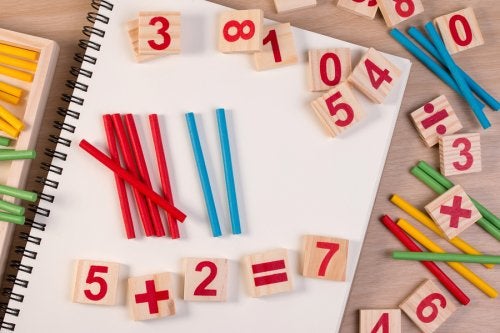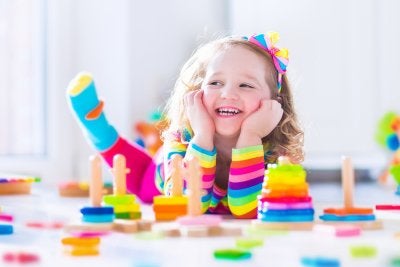-
Try These Sensory Activities at Home
Sensory activities are important to help your children explore their curiosity, learn more about their world, and develop critical thinking skills. Many of the activities found in the attached video can be done at home, in an afterschool program, or early childhood learning center near Pembroke Pines . Here is a better look at some fun and creative sensory activities to do with your children:
- Gather small toys that your preschool age child will love. Freeze the toys, in layers, and give your child some tools to break through the ice. This is a fun experience that can teach your child patience.
- Cook up pastas and have your children add food coloring. This creative exercise will teach them how to mix colors to make new colors.
- Place ivory hand soap into the microwave, and it will come out in interesting shapes that your children can touch and add coloring to.
-
Your 4-Year-Old’s Cognitive Milestones
Developmental milestones refer to different things that children can typically do by a specific age. If your child is entering pre-kindergarten in Pembroke Pines this year, then you can monitor his problem-solving, thinking, and learning development by understanding and watching for the cognitive milestones for 4-year-olds.
By the time they enter pre-k or reach age 4, most children grasp the concept of counting, have some understanding of time, and can recognize when things are different or alike. Also, pre-kindergarten students are often able to play card or board games, remember aspects of a book, and guess what may happen next in a story. By age 4, many children also start to use scissors, draw figures with 2 to 4 body parts, and copy capital letters.
Monitoring how your pre-k student moves, learns, speaks, plays, and behaves can help you check off these cognitive milestones and keep his doctor updated about his level of development.

-
Cognitive Development: Age 3
It is a fun and interesting time when children pass their toddler years and turn three years old. At this age, children are learning more about the world around them, and their preschool activities are filled with make-believe games and sensory-based learning. Here is a better look at the cognitive development of three-year-old children and how their preschool near Pembroke Pines can foster their growth:
As shown in the video, three-year-old children are exploring their world and learning through their different senses. They love to touch objects—such as puzzles and blocks in their learning center—and they enjoy playing make-believe games. This preschool age is the perfect time to encourage children to dress up and use their imagination. Three-year-old children are also learning different concepts, such as those related to time. Foster this understanding by setting a timer to signify the beginning or end of activities.
-
What Students Learn in First Grade
First graders learn by leaps and bounds. In first grade in Pembroke Pines, children develop a solid academic foundation in subjects like American history, geography, mathematics, and language arts. First graders are also encouraged to embrace their creativity through art. They develop an understanding of what it means to be part of a community outside of the home and they explore the importance of embracing social and ethnic differences.
Of course, every first grader learns at his or her own pace. However, most of them can read about 150 sight words, spell many words of up to three or four letters, and write full sentences. In math, first graders learn comparison skills and they can count up to 100. Most of them will also be able to add and subtract whole numbers and know how to tell time to the nearest half hour. Across all subject areas, first grade is generally the time in which children begin to grasp abstract concepts.

-
Practicing Math Skills at Home
As your child reaches kindergarten age, his or her math skills become increasingly important . Your child doesn’t stop learning when he or she comes home from the kindergarten school in Pembroke Pines; use everyday activities to reinforce math skills. Kindergarten math introduces basic addition and teaches comparison, classification, and pattern recognition skills. Bake cookies together and ask your child to help you count as you add the ingredients. Ask simple math questions, such as, “If I already added one cup of flour and I add two more, how many cups of flour will be in the bowl?”
Success with kindergarten math necessitates the use of concrete items to teach skills, rather than abstract lessons. Ask your child to help you shop for groceries. While at the supermarket, point out some of the similarities and differences between types of fruit and ask your child for his or her own observances. If you purchase multiples of an item, ask your child to help you practice skip counting. These everyday activities help your child understand the relevance of math skills for daily life.

-
Activity Ideas for Parents of Toddlers
Play is an essential part of toddler education, both in school and at home. Your toddler’s daycare will keep him or her occupied with a variety of play activities that also boost learning throughout the day. For activities for toddlers that give them the same learning experiences at home, watch this video.
Play teaches toddlers everything from colors and shape to fine motor skills, so try a variety of activities to keep your little one entertained. Puzzles are great for child development because they help toddlers practice a number of skills. Building forts, finger painting, and playing with balls are also fun and educational ways to spend time with your toddler.
-
Cultivating Empathy in Your Young Child
When your child is between the ages of three and four, he or she can enjoy preschool activities at a learning center in Pembroke Pines. Socializing with other preschool students will help your child develop empathy, but there are also steps you can take at home to cultivate empathy in your young child. Empathy is crucial for your child’s lifelong emotional stability and ability to work well with other people. The empathetic child is capable of distinguishing his or her feelings from those of others, understanding the perspective of others, and regulating his or her own emotional response.
Help your child identify his or her emotions.
 Preschool students are still working on learning how to identify their emotions and communicate their feelings. Sometimes, falling short in these areas can prompt a child to experience behavioral meltdowns. Label emotions whenever possible. For example, you could tell your child, “Thank you for the hug. That was so kind of you,” “I like how you shared your train with your baby sister. It’s made her so happy!” or “It must have made you sad to lose your teddy bear. Let’s see if we can find it together.”
Preschool students are still working on learning how to identify their emotions and communicate their feelings. Sometimes, falling short in these areas can prompt a child to experience behavioral meltdowns. Label emotions whenever possible. For example, you could tell your child, “Thank you for the hug. That was so kind of you,” “I like how you shared your train with your baby sister. It’s made her so happy!” or “It must have made you sad to lose your teddy bear. Let’s see if we can find it together.”Encourage the open sharing of feelings.
Young children need to know that their parents are actively listening to them and acknowledging their feelings. Make eye contact and listen carefully when your child speaks to you. Respond with joy when your child shares his or her happy feelings or with sadness when your child is upset. Share your own feelings with your child to help him or her understand that everyone has emotions and that part of life involves learning how to cope with them.
Assign responsibilities to your child at home.
Early childhood development research suggests that children who have small responsibilities at home generally become individuals who are caring and empathetic. Simple tasks like feeding the dog or helping you fold laundry will teach your child the value of helping others. Similarly, it will help your child to better appreciate when other people do nice things for him or her.
RECENT POSTS
categories
- Uncategorized
- Early Learning Center
- Pre-K
- Children
- Child Care Center
- Preschooler
- Preschool Blog Category | Tanglewood Academy
- Preschool Lunch
- Tanglewood Academy
- After-School Program
- Toddler School
- Early Childhood Education
- preschool activities
- pre-kindergarten
- childhood education
- pre-kindergarten programs
- Children’s education
- enrichment opportunities
- Kindergarten
- Nurturing Education Environment
- Toddler Care
- Child Separation Anxiety
- Toddlers
- Summer camp
- summer activities
- VPK
- Voluntary Pre-K
- Outdoor Activities
- Smart Strategies
- Tie Shoes
- Snacks
- Physical Activities
- Education
- Enrichment Activities for Kids
- Early Education Activities
- Preschool Curriculum
- Classroom Learning
- APPLE accreditation
- Language Comprehension
